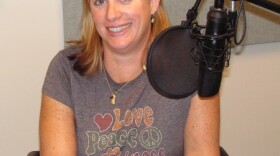3 years, 8 months, 1 week and 6 days. Between April 6, 1992 and December 14, 1995 the most brutal conflict in Europe since WWII took place in Bosnia Herzegovina.
By the end of the fighting, more than 100,000 civilians had been killed, more than 20,000 were missing and believed dead, and two million had become refugees. Over 80% of those who lost their lives were Bosniak Muslims who were targeted for elimination under the guise of “ethnic cleansing.” It was the worst act of genocide since the Nazi regime’s destruction of some 6 million European Jews during the Second World War.
Two weeks ago my family and I returned from visiting Bosnia. Now, I can hear many of you shaking your heads, asking ‘who in the world goes to Bosnia on vacation?’ And honestly had we not had friends from Germany currently living and working in the capital city of Sarajevo, traveling to this part of the world would not have been high on my must see list.
I am fortunate to be able to travel a lot. As an anthropologist I believe that traveling to, along with reading about different cultures is important. As Emily Verdouw writes, “When you push yourself out of your comfort zone and take the time to really see a different culture, you start to sip at the antidote of life’s poisonous attitudes. Travel exposes you to different perspectives, experiences, history, culture, religions and ultimately, a better self.”
Although our trip to Bosnia was short, I think it may have been one of the more important journeys we have taken in a long time. You see, none of us had been to a place so freshly free of war.
Bosnia today is a strange place. Not quite a developed nation, but certainly not under-developed either. It is a place of liminality. The flat that Frank, Katja and Julian live in looks very much like a high-end condo you might find in Chicago or Boston or Miami. Open concept, kitchen by Ikea and lots of windows that let in the beautiful views of the entire city.

But, as soon as you set foot outside, the signs of war are present on every corner. The exterior of the bakery just down the block is riddled with bullet holes, as is every other building on both sides of the street. As we walked from their flat to Old Town Sarajevo, along the river we followed the main artery that connects the airport and industrial part of the city to the Old Town’s cultural and historical sites. This street is called “Sniper Alley” and all you have to do is look to the left and then to the right to see the infrastructural damage caused by those snipers.
But perhaps the greatest damage can be seen in the people. The people are cautious. Cautious with each other and with visitors. The war in Bosnia was a war that pitted neighbor against neighbor and often family members against each other. The thing that made you an enemy was religion. Bosniak Muslims, Eastern Orthodox Serbs, and Catholic Croatians who as members of Federal Republic of Yugoslavia lived, worked, and often intermarried became mortal adversaries during the war.
In many ways I see in my own country the same patterns that are present in Bosnia’s recent past. Granted there are some very big differences, but in some ways these differences are not so large. This national dialogue about “making America great again” assumes that there was a magical time when everything was stable and good for everyone.
And yet we all know that this is not the truth. There is also this growing wave of nationalism that I find particularly disturbing. It is happening not only in our own country, but also in places like France and Great Britain. At the root of romancing the past and longing for a homogenous nation that never existed is, I think, a desire for stability. But our world has never been a stable place. Ever. Things have always been falling apart. As author Krista Tippett writes, understanding that life has never been all that stable is part of waking up.
We all need to wake up. We are living in a time when we can’t just sit at home and watch TV and ignore what is going on around us. The truth is we live in a very noxious world. Cultivating compassion through the exploration of those who are different than we are sparks empathy. And empathy fuels connection and allows us to see, in the words of poet Maya Angelou; “I note the obvious difference between each sort and type, but we are more alike my friends, than we are unalike. We are more alike my friends than we are unalike.”
Heather McIlvaine-Newsad is a Professor of Anthropology at Western Illinois University.
The opinions expressed are not necessarily those of the university or Tri States Public Radio. Diverse viewpoints are welcomed and encouraged.








